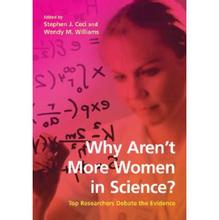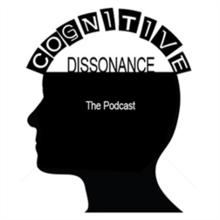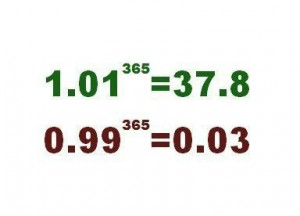Category Archives: Uncategorized
BLOG 2: Some comments on “UNDERREPRESENTATION OR MISREPRESENTATION”
In the passa ge of “Underrepresentation or Misrepresentation”, professor Doreen talks about the reason for fewer women in Science. Doreen thinks that it definitely has innate talent and interest differences between men and women, which is a quite different point of view from chapter One.
ge of “Underrepresentation or Misrepresentation”, professor Doreen talks about the reason for fewer women in Science. Doreen thinks that it definitely has innate talent and interest differences between men and women, which is a quite different point of view from chapter One.
As a matter of fact, I partially agree with this point of view that women and men have talent difference, not in general intelligence, but in specific cognitive abilities. In real life, I often find that men are very good at solving problems such as spatial task, and women have better abilities in learning language. Now, I am learning linear algebra and I find more difficult in learning these spatial tasks than my men classmates. Also, in high school, I find that men have quite big problems in learning English, while the tasks are very easy for women. Men and women both start in the same point—don’t know anything about the English and the Math, but why do they divide into two different ways? Gender schema we talked in Chapter One is definitely a  reason, but I think it’s not strong enough to answer this complex question. The difference in sex hormones which influence our cognitive abilities can be another reason.
reason, but I think it’s not strong enough to answer this complex question. The difference in sex hormones which influence our cognitive abilities can be another reason.
Although I believe the point above, I don’t think that women are less interest in science field. This showed “less interest” is because of the cognitive difference and the schema but not because of truly “less interest”. Since mentioned in passage, the cognitive difference is innate and presents very early in life, this leads women to choose less classes in math because when they are learning math, they find a lot of difficulties. Also, the gender schema influences women unconsciously to have a point that the women who learning science are very strange. So in order to be a normal woman, many females will give up their interest in science. I have many female friends who are really interest in science and engineering, but they give up in pursuing science in university because they think it is very difficult. But I think, as for a woman, although we face a lot of difficulties from the schema and the science itself, we could conquer them by using more efforts than men. And this is the reason why I choose to major in Math, and one of my best friends chooses to major in Construction of Robots. If we tell ourselves that it’s difficult, it definitely becomes more and more difficult.
Next, I want to point out some shortages, I think, in this passage. First, as for the question that does training and access to higher education influence the cognitive difference, the professor’s answer is “no”, but what I think it’s “yes”. From the Chapter One, we can see that the ratios of women a nd men who get good grades in difficult math are increasing annually. If training and access to higher education have no help, how could this situation form? And in the past, women in China are not allowed to go to school, but now, when the access to higher education is opened, so many women get high performance in Math. Second, as for the point that the hiring situation is now inclined to women, I think it’s a very narrow view. This situation is true when there has lots of scholarship given by the government to women, but this happens only at the workplaces that have the scholarships. When we talk about normal workplaces such as companies, women have still faced a lot of unfairness in employment. And even the female employers have unfair opinions about women due to the gender schema.
nd men who get good grades in difficult math are increasing annually. If training and access to higher education have no help, how could this situation form? And in the past, women in China are not allowed to go to school, but now, when the access to higher education is opened, so many women get high performance in Math. Second, as for the point that the hiring situation is now inclined to women, I think it’s a very narrow view. This situation is true when there has lots of scholarship given by the government to women, but this happens only at the workplaces that have the scholarships. When we talk about normal workplaces such as companies, women have still faced a lot of unfairness in employment. And even the female employers have unfair opinions about women due to the gender schema.
What’s more, I want to add something I think into the views of Professor Doreen. First, the cognitive differences are different from country to country. In China, because of the overflow of population, job is a very important problem to men and women. And in order to fulfill the need, most of women are choosing to learn science which can help them become more competitive in job competition. And because of this, the cognitive differences are quite small compared with the United States. Another point is about the situation of fairness. Although the government has given lots of awards to encourage women to study in science, this doesn’t change the real situation. Most of the awards, though named for “women”, are actually for men. And if this situation continues, we can’t see the future for women.
In addition, what I think it’s very significant to point out is about the difference between aptitude and achievement. Men are quite good in aptitude of science, but when they are doing tasks that are not very difficult, they get fewer grades. In my opinion, this is because women are more careful than men, so when they are doing easy tasks, they make fewer mistakes. But how could we do well in difficult tasks when we are not good enough in cognitive skills? Training is the only answer. And because we are more careful, if we are equally good in aptitude of science, we can do better. This is the future I am longing for .
.
BLOG 1: Gender Schema of Women is the Sinner
Dr. Valian depicts a great number of statistics about the topic Women at the Top in Science. Firstly, let me sum up the things she talks about in her work. In this passage, she lists two views on what we usually think are the reasons why there are less women at the top in science and then uses a lot of statistics and references to point out th e shortage in these two views. After subverting the old view in the readers’ brain, she states her own thoughts about the true reason which are listed below.
e shortage in these two views. After subverting the old view in the readers’ brain, she states her own thoughts about the true reason which are listed below.
Secondly, let me talks about my views on the three most important views in this brilliant work.
- WOMEN ARE NOT LESS TALENTED THAN MEN.
In fact, there is no talent in human beings that can be assessed. And even if there has this kind of talent difference between men and women, it can be improved by effort. Admittedly, girls may lack some spatial abilities, but they can use effort to improve. And with the effort, the ratio difference at top is notably decreasing. In Asian, especially in China, a lot of girls have better grades than boys. And as for me, I took six AP exams and all got Fives.My performance, I think and it’s true, is better than most of the boys in the world.
But I am suspicious about the point that more boys intend to go into science has no relation to the sex difference. I think these two things, at least, are partially related. In university, GPA is a quite important thing about the future. All students want to get higher GPA, so girls may be pushed to choose more classes in which they could get a high GPA such as art, but choose less science classes in which they would pay more effort to get a high GPA.
- AN INTEREST IN FULL LIFE IS NOT A REASON FOR FEWER WOMEN IN PROFESSIONAL CAREERS.
Granted, women have lots of things to do—take care of babies, do housework and so on. But with statistics, we can see, women with children publish works that are no less than women without children do. So this is only an excuse. And as a feminist, an important thing I want to ask is why these works are all for women? Why does the society think like that? If women were expected to pursue professional life, maybe they can do better.
- GENDER SCHEMAS ABOUT WOMEN CAUSE AN ACCUMULATION OF DISADVANTAGE, LEADING TO LESS SUCCESS.
The answer to the question I raise in Section Two is gender schema. We often hear some parents teaching their girls to “act as a girl”. But what does a “girl” look like? A girl must be expressive and nurturing, but have less  ability in reasoning thinking. So if a girl gets high education in the sciences, people around her may think that she is not a “girl”. And because for girls, there have already had a schema like that, society and human become suspicious about girls’ ability and are unfair when making decision. This unfairness in the work place leads to an accumulation of disadvantages, which totally reduces the number of women in top.
ability in reasoning thinking. So if a girl gets high education in the sciences, people around her may think that she is not a “girl”. And because for girls, there have already had a schema like that, society and human become suspicious about girls’ ability and are unfair when making decision. This unfairness in the work place leads to an accumulation of disadvantages, which totally reduces the number of women in top.
Here comes a question: Why does this schema come out? The cut of binary categories is definitely a reason. But I think what’s more important is that in the beginning of human existence, women were born with less strength and power than men. And during that period, what people need is food and what is needed to make food is strength. With less strength, women lose the dominant status and have to rely on men. And this depiction that women cannot do many things continues. Then this leads to another question: Why didn’t women’s depiction change when the world moved into a period in which strength became quite unimportant? In fact, in history, some women tried to change this situation. For example, Emperor Wu, who was the first female emperor in Chinese history, made a lot of effort to raise women’s status. But things didn’t change. This kind of status situation has continued for a long time, so men and women will continuingly act as what they are in the past.
Thirdly, there is a thing that was pointed out in the passage that I think is quite important. I am not surprised that men have an unfair view about women in work place, but I am stunned that women also have an unfair view about the women. In work place, female employers will tend to choose men, even when the women employees are more competitive. The society’s view of women influences women’s opinion. But how could a woman meet fair situation when she thinks that women are less competitive? This is a very important thing, and I wish all of my viewers could think about that.
Reference: Women at the top of Science—-And Elsewhere
Welcome to UR Blogs
Welcome to your student blog for the FYS-Women in Science!